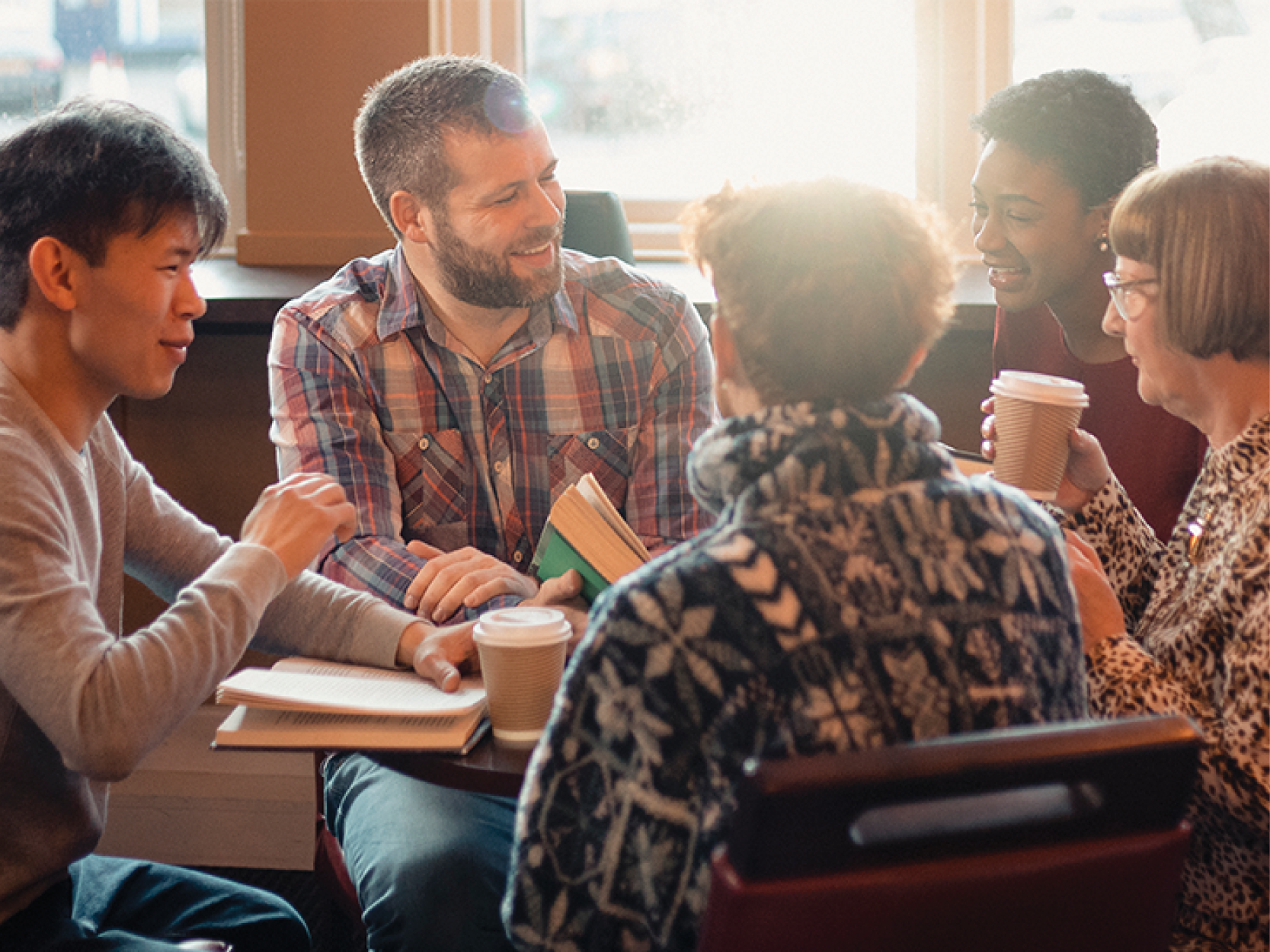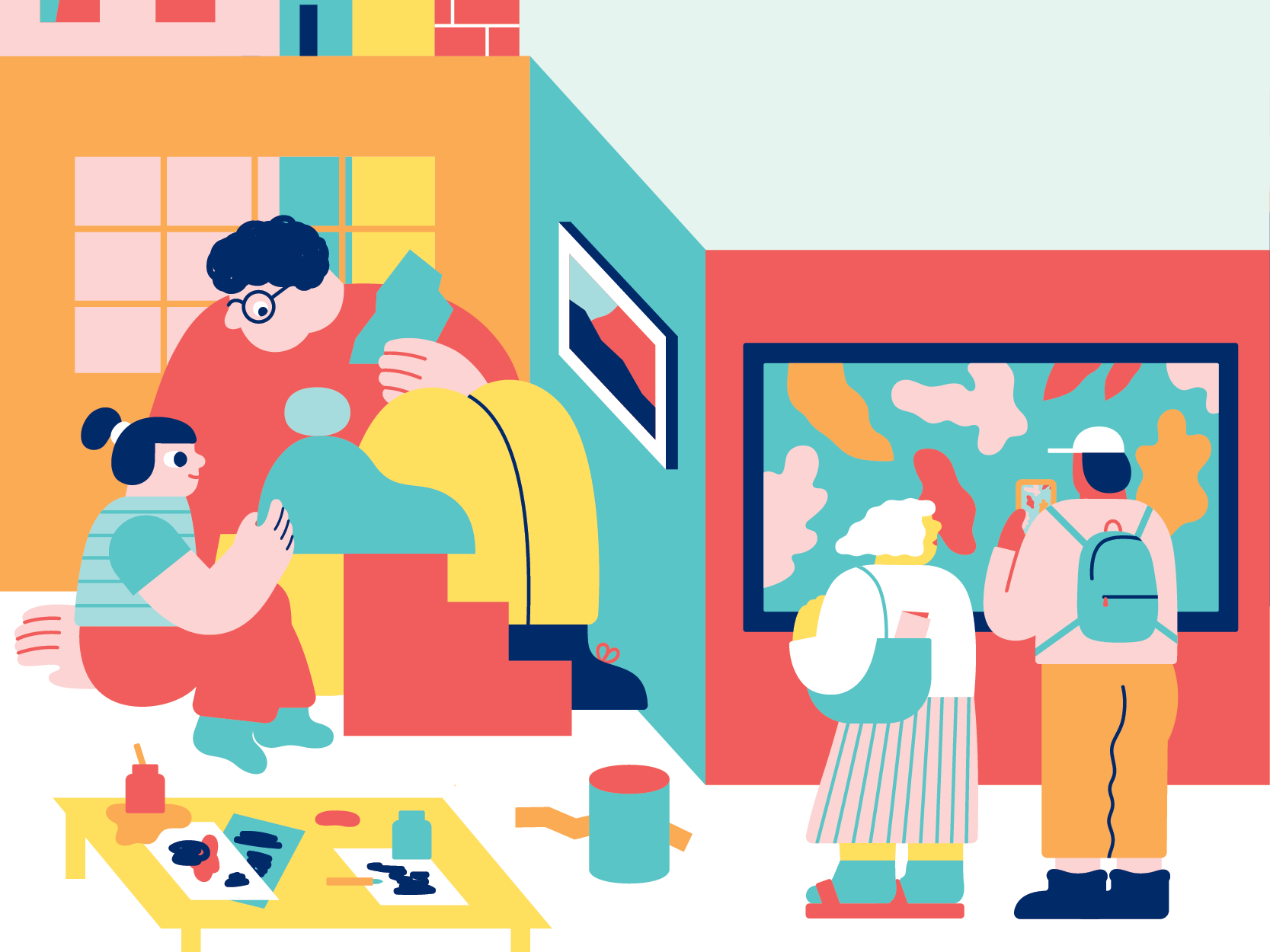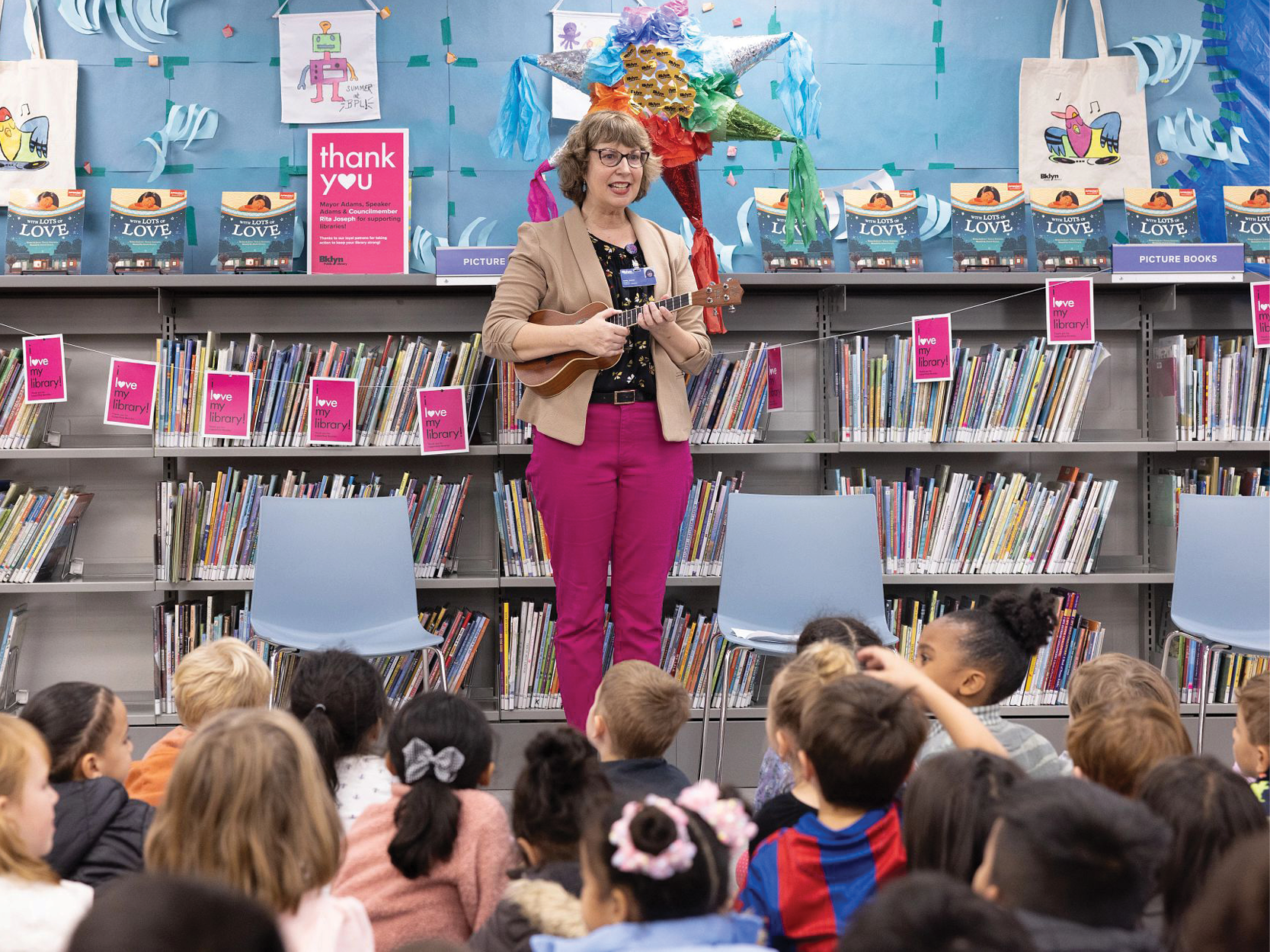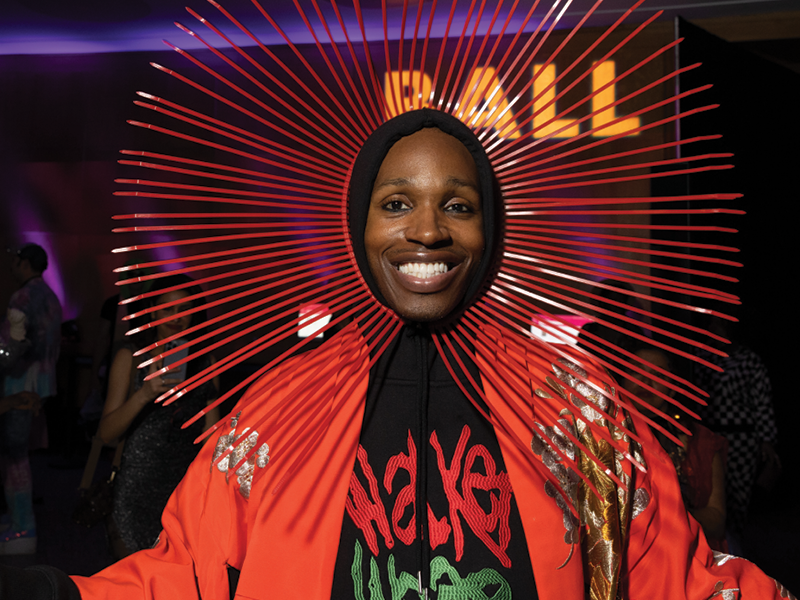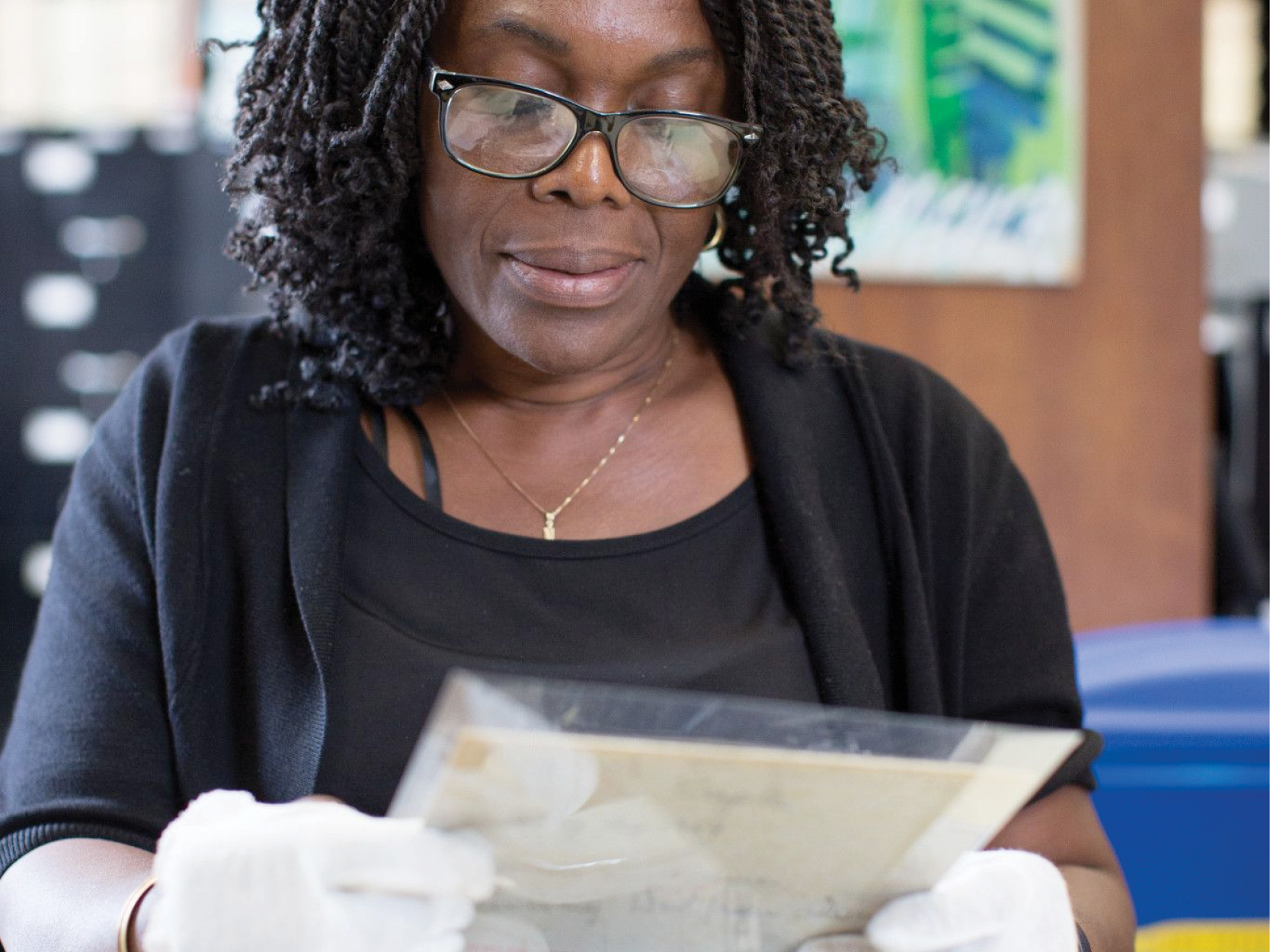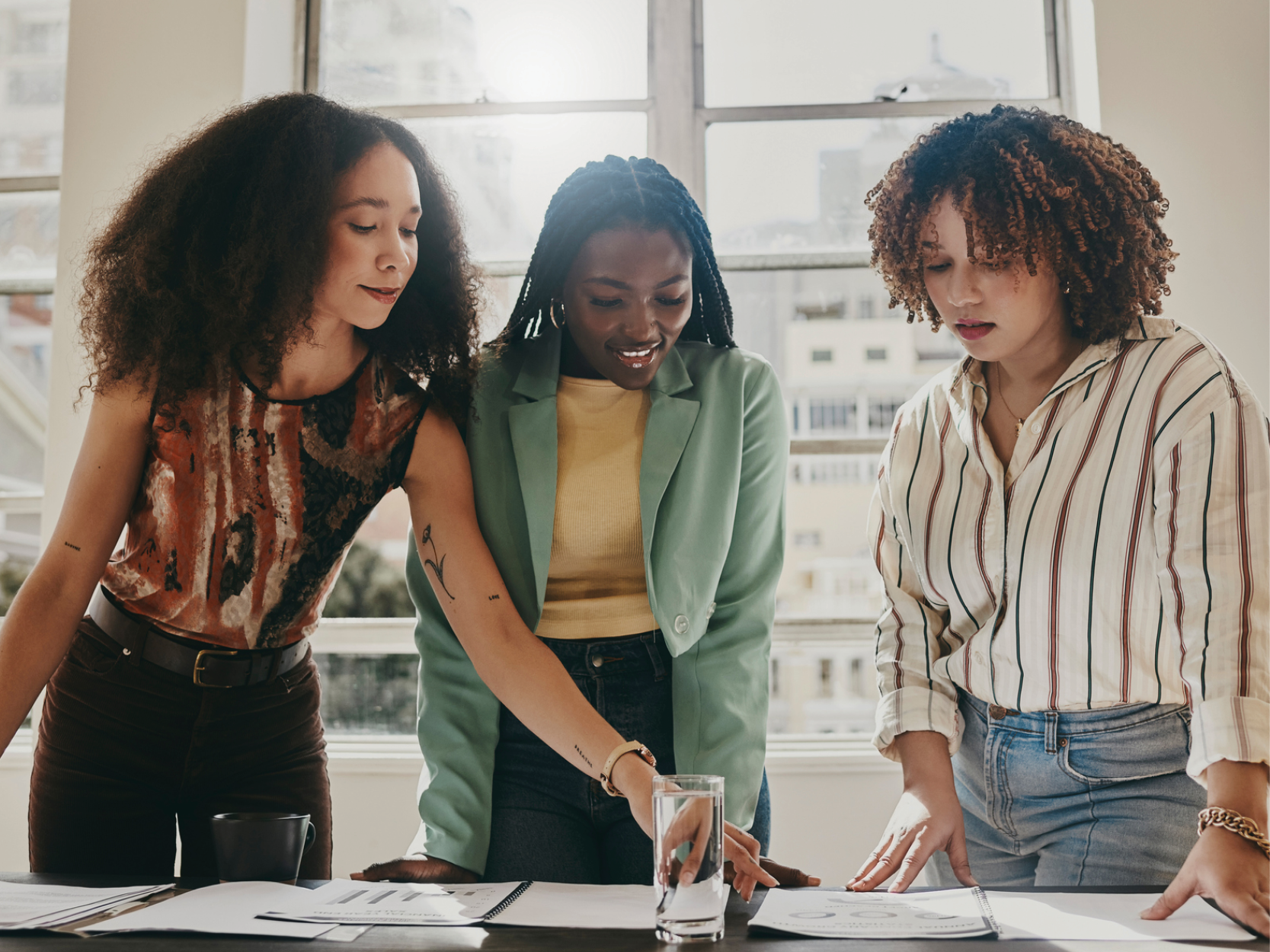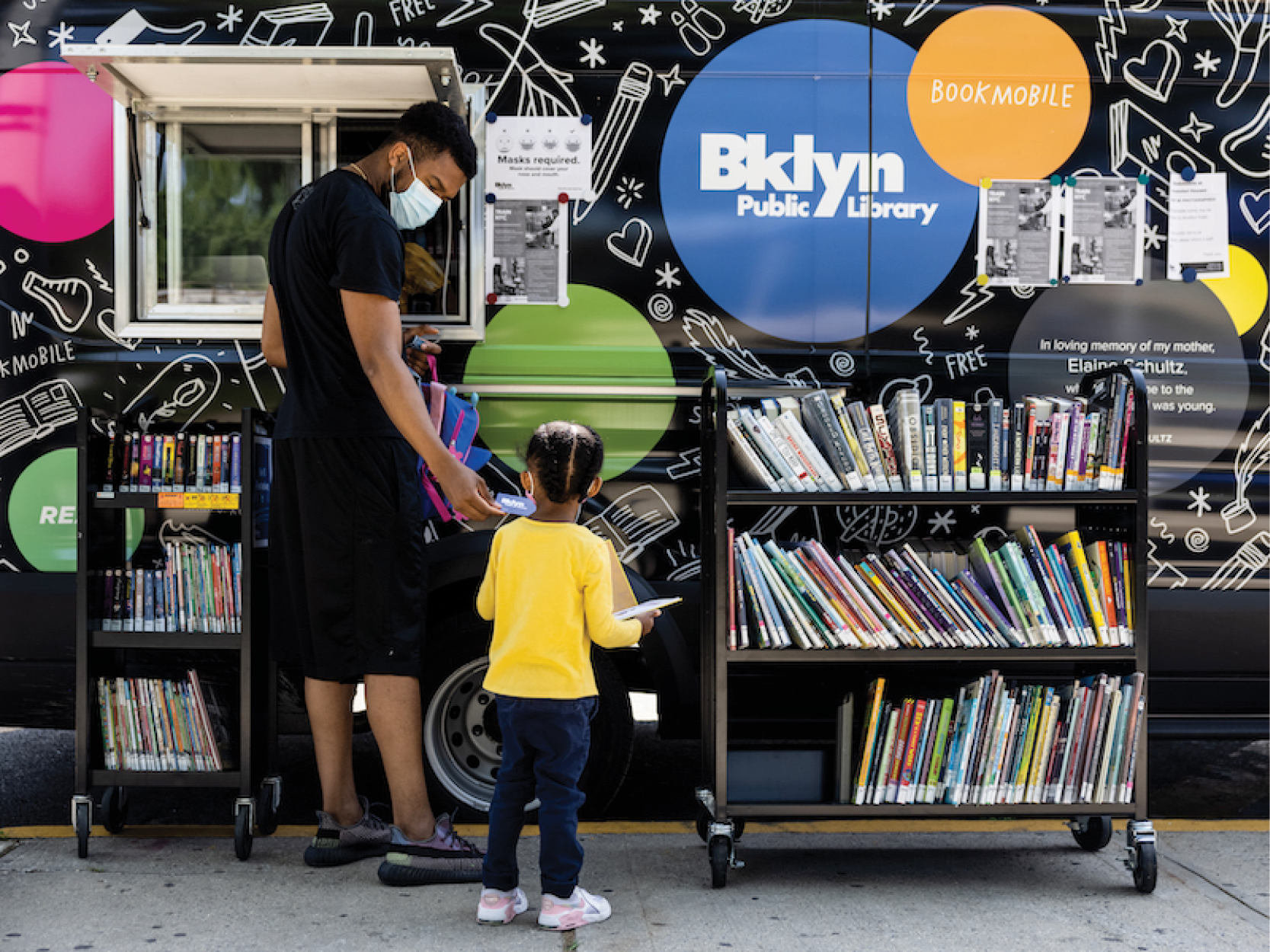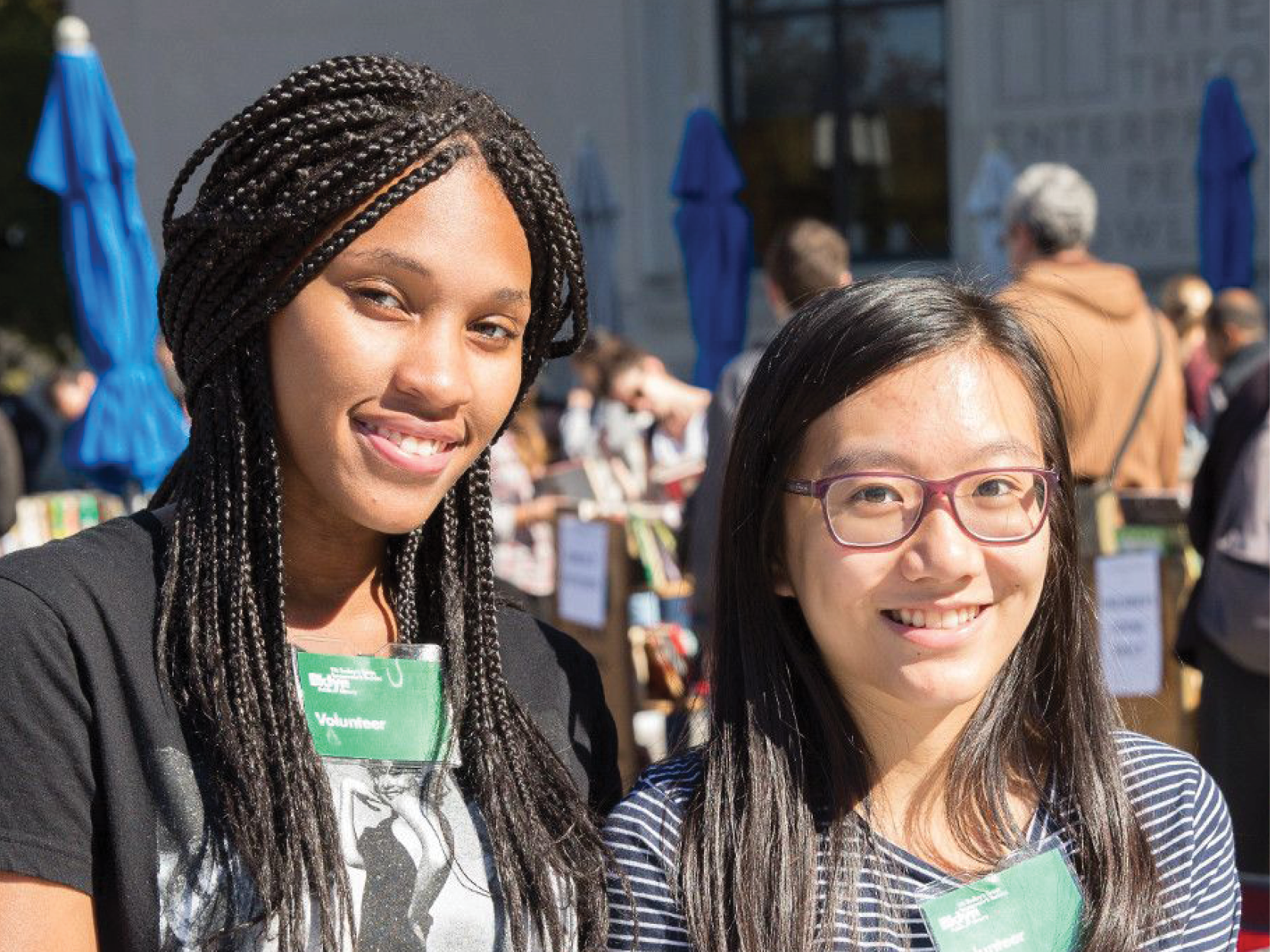The Center for Brooklyn History provides this guide for researchers of LGBTQ+ history in Brooklyn, primarily, and New York City, secondarily. The collections include oral history interviews with members of Brooklyn’s LGBTQ+ community, activism and AIDS-related materials, newspaper clippings, local newsletters, books, as well as New York City-related resources held outside of these collections. Currently, there is no primary keyword to search for LGBTQ+ histories across the collections. Try searching names of individuals (e.g. "Walt Whitman," "Ella Wesner," "Mabel Hampton," "Hart Crane,"), events (e.g. the "AIDS" epidemic, "Stonewall,"), locations (e.g. "Coney Island," "Brooklyn Navy Yard" "Brooklyn Heights," the "Brooklyn waterfront"), and other entities (e.g. the "Committee of Fourteen") that are connected to LGBTQ+ history. The book When Brooklyn Was Queer by Hugh Ryan is an excellent starting place. It is available in the Center for Brooklyn History library (noncirculating) and throughout the Brooklyn Public Library system (circulating). Additional titles on this subject can be found in the booklist curated for this guide. In addition to these materials, researchers are encouraged to browse the collections and research guides for resources that may be relevant to their work. To create an appointment or ask a question, please contact cbhreference@bklynlibrary.org.

Brooklyn Public Library, Center for Brooklyn History.
Archival Collections
AIDS/Brooklyn Exhibition collection: Oral histories, 1992-1993
Call number: 1993.001
Extent: 46.79 Gigabytes in 133 files, total running time: 34 hr., 2 min., 59 sec.; 2.5 linear feet in 6 boxes
Link to finding aid.
- Series 3: Research Materials
Brooklyn newsletter collection, 1869-2004 (bulk, 1960-2000)
Call number: ARC.174
Extent: 2.0 Linear feet in two record cartons.
Link to finding aid.
- Gay Friends & Neighbors, Ltd. Brooklyn.
Brooklyn Historical Society ephemera collection
Call number: ARC.272
Extent: 19.9 Linear feet in 9 filing cabinet drawers and 2 oversize flat boxes
Link to finding aid.
- Drawer 5: Lesbian, Gay, Bisexual, and Transgender (LGBT)
Brooklyn Historical Society vertical files
Call number: ARC.272
Extent: 4 Linear feet in 2 filing cabinet drawers
Link to finding aid.
- Drawer 1: Lesbian, Gay, Bisexual, Transgender and Queer (LGBTQ)
Arnie Goldwag Brooklyn Congress of Racial Equality (CORE) collection, 1943-2007
Call number: ARC.002
Extent: 13.75 Linear feet in 13 manuscript boxes, 5 record cartons, and 2 artifact boxes
Link to finding aid.
- Box: 16 Item : 9 Boggan, E. Carrington, Marilyn G. Haft, et al., The Rights of Gay People
- Box: 18 Item : 12 Hunter, John Francis, The Gay Insider/USA
The Packer Collegiate Institute records, circa 1780 to 2016
Call number: 2014.019
Extent: 283.6 Cubic Feet in 566 boxes, one flat file drawer, and one object
Link to finding aid.
- Box: 391 Folder : 57 Human Rights day / Esty / Caubochaino (?) gay rights / Sally Krause Lower School bake sale
Brooklyn photograph and illustration collection, circa 1850-2010
Call number: ARC.202
Extent: 12.6 Linear Feet in 23 manuscript boxes, one oversize box, one extra oversize box, and one flat file drawer.
Link to finding aid.
- Box: 32 Item: 10 Gay Life
Oral History Collections
AIDS/Brooklyn Oral History Project collection, 1992-1993
Call number: 1993.001
46.79 Gigabytes in 133 files, total running time: 34 hr., 2 min., 59 sec.; 2.5 linear feet in 6 boxes
Link to oral history portal.
This is a collection of oral histories collected for the AIDS/Brooklyn exhibition, undertaken by the Brooklyn Historical Society in the early 1990s. The project attempted to document the impact of the AIDS epidemic on Brooklyn communities. Because the project was exhibited, Brooklyn Historical Society also holds a collection of physical materials that were exhibited, including pamphlets, articles, and books. See the “General Archival Collection” section of this guide to learn more about the physical collection.
Voices of Crown Heights oral histories, 2016-2017
Call number: 2016.027
Extent: 42 Gigabytes in 119 files
Link to oral history portal.
This collection includes oral histories conducted by Brooklyn Historical Society (BHS) (now the Center for Brooklyn History), Brooklyn Movement Center (BMC), and Weeksville Heritage Center (WHC) beginning in 2016 and collected and arranged by BHS in 2017. The assembled collection was part of broader programming efforts by the three organizations to commemorate and examine the transforming Crown Heights neighborhood of Brooklyn a quarter-century after the August 1991 conflicts and unrest sometimes called “the Crown Heights riot.” Items of particular interest to those researching LGBTQ+ topics include:
- Donna Cuthbert, 2017 August 25
- Cuthbert remembers sneaking into the Starlite Lounge when she a young teen. She relates how she started work at the Starlite much later as an adult. She describes the different nights at the bar, and the range of clientele it attracted. She gives an overview and shares specifics on the array of characters who frequented the Starlite. She also talks about personal relationships she made with customers. She describes losing William “Butchie” King, the disc jockey who ran the Starlite for years. Finally, Cuthbert reflects on the bar’s closing.
- Albert Johnson, 2017 October 22
- Johnson tells stories about the clubs he went to, the people he loved, and the fashion business circa the 1980s. He tells of the losses to AIDS in its early years in New York. Johnson was diagnosed with HIV in 1996 and relates those early experiences of trying to get medical care and treatment. He talks about meeting “Butchie” King, who was a DJ at the Starlite Lounge in the Crown Heights neighborhood of Brooklyn, and how it took some convincing for Johnson to come bartend there in 2001. He talks about attracting a regular clientele by being the first to make fancy mixed drinks at the bar; describing some drinks and some patrons.
- Timothy La’Viticus, 2017 July 13
- La’Viticus talks about his involvement at the tail end of the Starlite Lounge’s existence in the Crown Heights neighborhood of Brooklyn. The Starlite was one of the oldest city bars to welcome gay, as well as heterosexual, patrons. La’Viticus recalls other gay clubs in the city which have closed, including Two Potatoes/ Chances Are on Christopher Street in the Greenwich Village neighborhood of Manhattan. La’Viticus also shares some of his biographical background.
Crossing Borders, Bridging Generations oral histories, 2011-2014
Call number: 2011.019
Extent: 709.0 gigabytes of oral history interviews with 107 narrators
Link to oral history portal.
Included are transcripts and audio recordings of interviews conducted by twenty-five oral historians with 107 narrators. Also included are photographs of the narrators and their families. The oral histories were conducted as life history interviews; topics of discussion include self and identity; religion and tradition; laws and mores; food and celebration; love and marriage; parents and children; race and ethnicity; and cultural preservation. Items of particular interest to those researching LGBTQ+ topics include:
- Sheila Bligen and Barbara Chambers, 2014 May 6
- Blingen and Chambers both discuss their childhoods in New York City; courtship and marriage; artistic interests; and impressions of the Civil Rights Movement.
- Ricardo Osmondo Francis, 2014 June 13
- Francis discusses his childhood; participation in the Singing Boys of Houston choir; formal arts education; involvement in the artistic community; perspectives on racism and homophobia; mother’s adoption; and maternal grandmother’s sentiments on race and racism.
- Svetlana Kitto, 2014 June 5
- Kitto discusses her childhood in Los Angeles, California; commitment to activism; sexual orientation; interest in creative writing; maternal grandparents’ experiences as Holocaust survivors; father’s childhood experiences at an alternative school; and parents’ courtship, marriage, and divorce.
- Thomas Lax, 2012 June 16
- Lax discusses his gender, racial and sexual identities; educational experiences; romantic relationships; paternal grandparents’ flight from Nazi-occupied Europe; maternal grandparents’ medical careers, interracial marriage, and separation; and parents’ courtship, marriage, and divorce.
- Shameeka Mattis, 2013 July 11
- Mattis discusses her childhood in the Bedford-Stuyvesant neighborhood of Brooklyn; crime and gentrification in Brooklyn, New York; and courtship and marriage to her Haitian American wife.
- Alicia Ohs, 2014 June 6
- Ohs discusses her racial and sexual identities; Japanese and American ancestry; parents’ marriage and Christian convictions; maternal grandparents’ experiences in a Japanese internment camp during World War II; involvement in theatre communities in New York City and San Francisco; experience during September 11 terrorist attacks; and an experience of an arrest in New York City.
- Alicia Piller, 2012 February 8; 2012 April 12
- Piller discusses her childhood in Chicago; racial and religious identities; romantic relationships and sexuality; parents’ courtship and marriage; family’s spiritual beliefs and religious traditions; visits to Tanzania with her father; and impressions of living in Brooklyn.
- Manu Sachdeva and Laurel Turbin, 2012 December 3
- Turbin and Sachdeva discuss their gender, racial, and queer identities; families’ Jewish and Sikh religious convictions; involvement in the Asian American community in New York City; and plans for having children.
- Shawnta Smith, 2012 June 10
- Smith discusses her childhood and adolescence years in Brooklyn, New York; sexual identity; experiences as a queer activist; father’s music and involvement in Rastafarianism; parents’ divorce; and incidents of child abuse in her family.
- Geo Wyeth, 2014 June 4
- Wyeth discusses his racial and gender identities; incidents of racism and bullying in the Hell’s Kitchen neighborhood of Manhattan and Montclair, New Jersey; relationship to the artistic community; and his mother’s experiences growing up in Washington, D.C. as schools were desegregated.
Muslims in Brooklyn oral histories, 2018
Call number: 2018.006
Extent: 8.32 Gigabytes in 149 files
Link to oral history portal.
The interviews reflect varying approaches to religious observance among Muslim Brooklynites in relation to a wide range of communities and traditions within Islam, including Sunni, Shi’i, Sufi, Nation of Islam, W. D. Mohammed community, Five Percent, Dar ul Islam, and Ansaarullah. Collectively, there is particular focus on cultural and religious customs, practices, and gender roles within these communities; education and the arts; immigration from South Asia and the Middle East; the Nation of Islam; Islamophobia in the wake of the 1993 and 2001 terrorist attacks on the World Trade Center as well as after the 2016 presidential election; political activism and engagement; and community relations with law enforcement and government officials. Items of particular interest to those researching LGBTQ+ topics include:
- Mohammed Fayaz, October 22, 2018
- Fayaz speaks about his exploration of his culture, gender identity, sexual orientation, and Muslim faith; his development as an artist; and posting his artwork on social media. He elaborates on the promotional artwork and organizing he has done for Papi Juice; the group’s focus on creating “intentional spaces” for queer people of color; and his friendships with founders Oscar Nñ and Adam Rhodes.
- Wazina Zondon, August 2, 2018
- Zondon speaks extensively about her identity as a Muslim Afghan queer woman; her work with Terna Tilley-Gyado on their performance series Coming Out Muslim: Radical Acts of Love; and their collaboration on the project with musician Alsarah Abunama-Elgadi (interviewed for this collection on August 31, 2018).
Voices of Brooklyn oral histories: Our neighbors, 2007-Present
Call number: 2008.031
Extent: 58.65 Gigabytes in 116 files
Link to oral history portal.
The assembled collection took shape in 2008 under the project title “Brooklyn History Makers.” The ongoing oral history collection, retitled in 2016, features a diverse range of narrators; all longtime neighborhood residents who describe the changes they have observed in their neighborhoods over decades. Items of particular interest to those researching LGBTQ+ topics include:
- Ed Moran, 2009 January 29
- Moran delves into the challenges of a three-and-a-half year period between permanent pastors at Lafayette Avenue Presbyterian Church in 1989 to 1992. He describes the procedures of the Session and their role in reaffirming the More Light position of the church; an open-door policy to welcome members to be of any sexual preference, as well as electing Reverend David Dyson as permanent pastor. Both efforts were challenged by a few members and by the lingering disarray of Rev. Knight’s management.
Images
The Center for Brooklyn History’s digital images collections hold few photographs of prominent figures in Brooklyn’s LGBTQ+ history. However, there are numerous images of locations associated with Brooklyn’s early queer spaces, including Coney Island, the Brooklyn Navy Yard, Brooklyn Heights, and the Brooklyn waterfront, as well as the professions typically found in those areas: performers, sailors, and, for women during World War II, Navy Yard workers.
While the Center for Brooklyn History is merging the Brooklyn Public Library’s and the former Brooklyn Historical Society’s collections, images can be access through two portals:
Books
This booklist highlights some of the Center for Brooklyn History’s titles pertaining to LGBTQ+ history. Researchers are encourage to browse the catalog for additional titles. As the book collection is non-circulating, titles cannot be placed on hold online. To request books, please contact us at cbhreference@bklynlibrary.org. Click the heart beside the book title to create your own booklist (sign in to your account first).
Newspapers

The Brooklyn Newsstand is an excellent resource for researching histories of figures and events in LGBTQ+ history, from performer Ella Wesner to poet Hart Crane. Use quotation marks around search terms longer than one word (e.g. "Ella Wesner"). A tutorial on the newsstand is available.
Lectures
When Brooklyn Was Queer
May 2018
In this video recording of a Brooklyn Public Library program, journalist and curator Hugh Ryan highlights the ways in which, for more than a century, the waterfront spaces in Brooklyn supported Brooklyn’s queer community – providing work, entertainment, and anonymity. From Coney Island to Red Hook, the Navy Yard to Brooklyn Heights, these areas offered a sense of freedom and belonging not found anywhere else in the borough. Ryan speaks about his book, When Brooklyn was Queer, in anticipation of its 2019 release, and about the exhibit “On the (Queer) Waterfront,” which opened in 2019 at the former Brooklyn Historical Society.
Other Archival Resources in NYC
Black Gay and Lesbian Archive, Schomburg Center for Research in Black Culture, Manuscripts, Archives and Rare Books Division
515 Malcolm X Boulevard, New York, NY 10037-1801
LaGuardia & Wagner Archives: The LGBTQ Collection
3110 Thomson Ave, Long Island City, NY 11101
718-482-5065
The Lesbian, Gay, Bisexual and Transgender Community Center Archive
208 W 13th Street, New York, NY 10011
212-620-7310
Lesbian Herstory Archives
484 14th Street, Brooklyn, NY 11215
lesbianherstoryarchives@gmail.com
718-768-DYKE
Manuscripts and Archives Division of the New York Public Library, Gay and Lesbian Collections & AIDS/HIV Collections
476 Fifth Avenue, Room 328, New York, NY 10018
Link to make an appointment: http://archives.nypl.org/mss/request_access
Link to collections: https://www.nypl.org/lgbtqcollections
Online Archival Resources
ACT UP Oral History Project
http://www.actuporalhistory.org/interviews/index.html
NYC Trans Oral History Project
https://www.nyctransoralhistory.org/
NYC LGBT Historic Sites Project
http://www.nyclgbtsites.org/
OUTgoing: Explore NYC’s Historic Queer Nightlife
https://outgoingnyc.com/
This research guide was written by Mary Mann. This research guide was updated May 2023.
